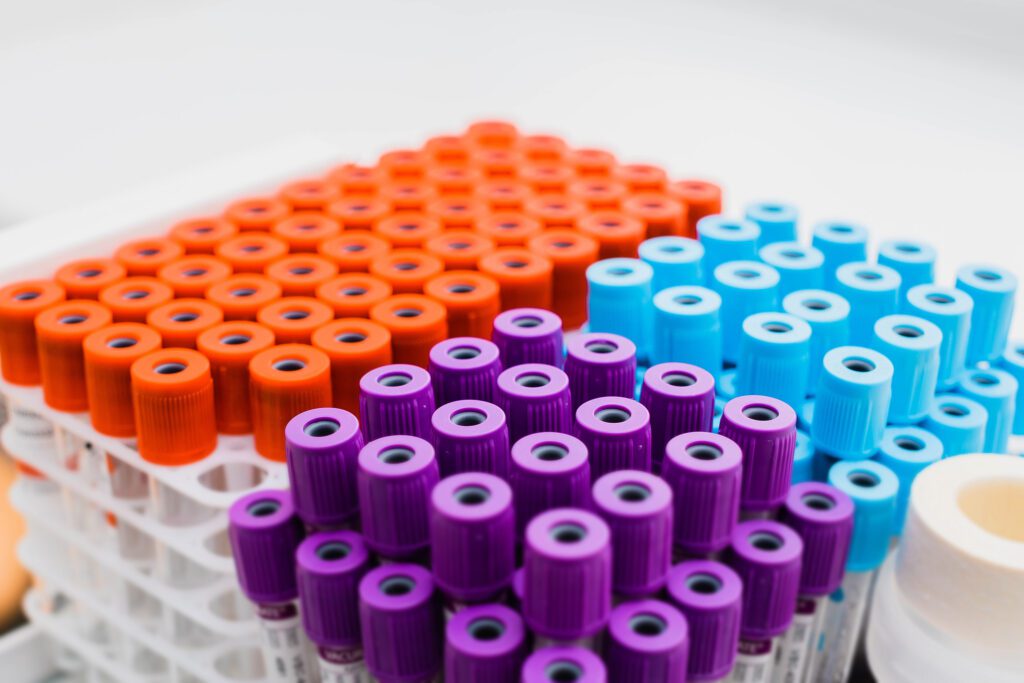UCF Researchers Use Liquid Biopsies to Detect Cancer Earlier
by GERARD JOHNSON
The University of Central Florida’s Burnett School of Biomedical Sciences Cancer Research Division, led by Dr. Annette Khaled, is on the cutting edge of cancer research. Its most recent publication in the peer journal Plos One delved into the cancer detection technology of liquid biopsy. Liquid biopsies have revolutionized the field of clinical oncology. The new diagnostic methods are a non-invasive option that could potentially provide a better picture of the whole tumor. This can help the oncologist improve the treatment, management, and monitoring of a host of different cancers.
Liquid biopsies isolate tumor-derived entities — like circulating tumor cells, circulating tumor DNA, and tumor extracellular vesicles— present in the body fluids of patients with cancer. Then the genomic and proteomic data within them are analyzed. Isolation and analysis of methodologies for liquid biopsies are rapidly evolving, providing researchers with greater details regarding the tumor progression while opening up newer avenues for the detection, continuous monitoring, precision treatment, and screening of markers for therapeutic resistance. Despite the development of new methods for liquid biopsy, few have gained approval from the U.S. Food and Drug Administration (FDA) for clinical use. The lack of FDA approval methodologies is due to the lack of robust research in the field.
Fighting cancer is personal for Khaled after she watched her grandmother fight cancer. Although her grandmother beat the cancer, the treatments weakened her and ultimately led to her passing later in life. Khaled has been focused on noninvasive diagnostic tools like liquid biopsy as a way to reduce the impact of cancer treatments on the bodies of cancer patients. Current liquid biopsy technologies focus on enumeration, or simply counting the number of CTCs present in the blood. The current gold standard for clinical circulating tumor cell (CTC) enumeration is the FDA-approved CellSearch® System (CSS). CSS is the first and only actionable test for detecting CTCs in metastatic breast, prostate, and colorectal cancer patients. CCS and other liquid biopsy analyses are used as companions of other diagnostic tools to gain new insights into metastasis biology, improve the stratification of therapies, and obtain insights into therapy‐induced selection of cancer cells. Yet, liquid biopsy methods for the detection of CTCs are used in clinical settings as an additional diagnostic tool with mainstream tissue biopsy methods. The use of CTCs counts is still not a part of routine cancer screens due to the lack of standardization and validation needed to implement liquid biopsies as well as tumor heterogeneity, even within the same patient, and the lack of biomarkers for CTC detection to overcome this hurdle. The CTC markers provide little information on the potential of these shed tumor cells, which are normally short-lived, to seed metastatic sites.
Khaled and a team of researchers at UCF published a paper on Chaperonin containing TCP1 as a marker for the identification of circulating tumor cells in the blood. They looked at the possibility that using the chaperonin-containing TCP1 or TRiC could be a more accurate alternative to simple CCTs. TRiCs are markers to detect the CCT2 that have been shown to inversely correlate to cancer patient survival. They demonstrated the CCTS staining could be incorporated into existing CTC protocols and provide biologically relevant information. This research brings us a step closer to less invasive diagnostic techniques allowing doctors to track the progression of cancer in their patients without the use of traditional tissue biopsy. Khaled sees the use of exosomes as markers as being the next big technique for cancer dictation and treatment. Funding for cancer research has slowed as resources were reallocated for Covid-19. Although the funds raised have been reduced, the momentum of the research that is ongoing remains strong. The important work of Khaled and the team will continue to advance the search for less invasive cancer treatments and diagnostics tools for patients.
